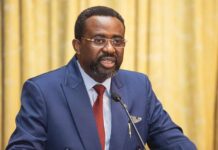Government’s decision to disclose its stalled negotiations with Saderea bondholders sends a clear message: Ghana will not compromise the integrity of its debt restructuring programme for the sake of expedient deals.
The Ministry of Finance deserves credit for maintaining discipline in the face of creditor pressure.
The Saderea Ad Hoc Committee’s demand for full repayment without haircuts directly contradicts the comparability of treatment principle that underpins successful sovereign debt restructuring.
Accepting such terms would set a dangerous precedent that could cause a dent in what has been a fairly successful debt exchange programme.
The numbers speak for themselves. While other international bondholders accepted 48 percent reductions in their claims, the Saderea holders seek zero debt relief.
Their proposal would extend debt maturities by nearly six years while providing no meaningful contribution to the nation’s debt sustainability objectives.
Government’s offer of a tap issuance – expanding existing government bonds to provide more liquid instruments – represents a reasonable compromise.
By offering bondholders access to tradable securities from the October 2024 exchange while maintaining a 39 percent debt reduction, officials have demonstrated flexibility within sustainable parameters.
Critics may argue that Ghana should prioritise resolving all outstanding debt issues quickly. However, the principle at stake extends far beyond this single negotiation.
Credibility in international markets depends on the consistent application of restructuring principles. Yielding to holdout creditors demanding preferential treatment would signal weakness and encourage similar tactics from other bondholders in future crises.
The IMF programme framework provides essential guardrails for these negotiations. The nation’s debt sustainability depends on achieving meaningful reductions in debt burdens, not merely extending payment schedules. The Saderea proposal fails this basic test by offering a duration extension without corresponding debt relief.
Government’s transparency in disclosing these negotiations also merits recognition. By making the details public, officials have demonstrated accountability while potentially applying market pressure on holdout creditors. This approach contrasts favourably with the opacity that characterised previous debt negotiations.
Domestic economic recovery remains fragile. Inflation has declined and the cedi has stabilised, but maintaining fiscal discipline requires resolving debt negotiations on sustainable terms. The temptation to accept unfavourable deals for short-term relief must be resisted.
The path forward requires continued patience and strategic discipline. Government should maintain its commitment to comparability of treatment while exploring creative solutions that provide creditors with liquid instruments within acceptable debt reduction parameters.
Ghana’s broader debt restructuring success demonstrates that principled negotiations can achieve sustainable outcomes. The Saderea negotiations present an opportunity to reinforce these principles and strengthen Ghana’s position for future market engagement.
Compromise may eventually be necessary, but it must occur within the framework that has guided economic recovery. The stakes extend beyond this single negotiation to credibility of the entire post-crisis economic strategy.










